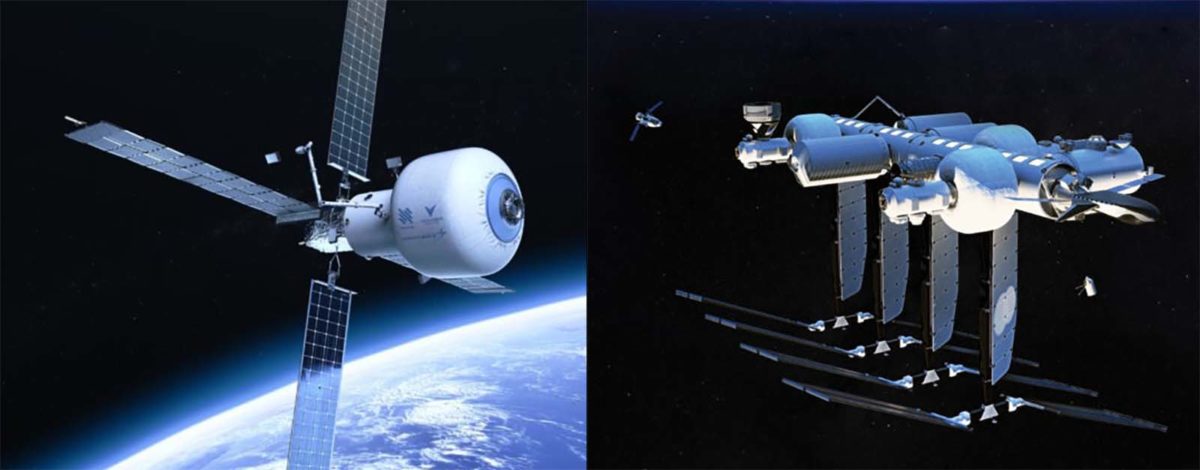Airbus seeks partnership with U.S. companies on private space station
By Paul Brinkmann|April 6, 2022
Executive says the company has created a concept for a modular space station that could connect to others
COLORADO SPRINGS, Colo. — Airbus Space Systems wants to join its SciHab space station, which at the moment is just a concept, to one of the stations planned by providers in the United States, an executive said today at the Space Symposium in Colorado Springs.
Such a move would be a step toward ensuring the preservation of the partnership of nations that built the International Space Station, apart from Russia possibly since that country has threatened to leave the partnership, said Manfred Jaumann, an Airbus Space Systems vice president and head of low-Earth orbit operations.
Jaumann said the European aerospace giant intentionally designed its concept to allow in-space attachment with another station.
“I can’t discuss details of Airbus negotiations because we all have signed nondisclosure agreements, but I can tell you things are going very well,” Jaumann told me. “The present geopolitical situation, the Ukraine war has spurred the space agencies and companies to accelerate discussions on future cooperation.”
Airbus was one of six private companies that described plans for commercial space stations in a panel discussion here.
“This is important: It is so modular, it can attach to another station,” Jaumann said. “Therefore, we are talking to you guys here about an international partnership.”
He was referring to the other companies on the panel: Boeing, Jeff Bezos’ Blue Origin, Colorado-based Sierra Space and two Houston-based companies, Axiom Space and Nanoracks.
Phil McAllister, NASA’s director of commercial spaceflight, told me after the panel that it was the first time he’d heard of Airbus talking about such a partnership publicly.
McAllister said NASA has convened a working group, whose members haven’t all been disclosed, to talk about preserving the international nature of the ISS partnership.
Separately, NASA has funded three companies to develop plans for privately owned space stations that would be ready by 2030, when current plans call for the International Space Station to be decommissioned.
Blue Origin leads a partnership that includes Sierra Space to build a concept called Orbital Reef. Blue Origin announced at the Symposium that another company owned by Bezos, Amazon Web Services or AWS, also joined the Orbital Reef team.
The other two NASA-funded plans are led by Nanoracks and longtime aerospace contractor Northrop Grumman.
Axiom, meanwhile, has a separate NASA contract to attach its initial modules to ISS that would later be detached and become a free-flying station.
Earlier on Wednesday, an executive with another Orbital Reef partner, Florida-based Redwire Space, said the project was looking for ways to preserve the international nature of the current space station partnership.
“We are talking about ways to do that, but we have nothing specific to announce,” Mike Gold, an executive vice president with Redwire, told me.
David Parker, director of human and robotic exploration for the European Space Agency, said at another symposium event on Wednesday that the future of international cooperation in space is uncertain.
“What happens to the International Space Station partnership in a commercial space station world, that’s a big open question right now,” Parker said.
Axiom’s representative on the panel discussion, Chief Revenue Officer Tejpaul Bhatia, said the scale of commercial space is poised to expand rapidly.
“If you want to look at an example, look at the five biggest companies in the world right now,” Bhatia said. “They’re all tech companies. They’re all internet companies. They’re all venture backed companies, three of which didn’t exist 25 years ago.”
“So if you’re telling me that space companies can’t in the next decade become trillion-dollar companies, then I think you’re not focused on the right things.”





